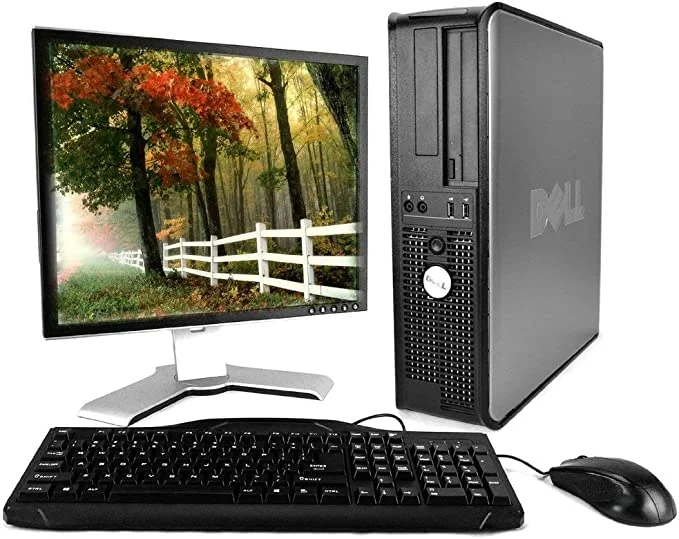How does GPS Navigation Work?
Getting Started

Having a global positioning GPS Navigation system (GPS) is an excellent way to navigate the roads of unfamiliar locales. Gone are the days of pulling over for directions or looking on a map.
When shopping for the right GPS, there are a few questions to ask yourself: How will you be using it? Do you need a big display? Are there lifetime map updates? Should you even bother with a GPS, or can you just use your phone for directions? Here’s what you should consider when navigating the GPS market.
How Does it Work?
Armed with your precise latitude, longitude, and other location data, the GPS receiver can overlay this information onto map files stored on the unit, revealing your current position, as well as where you’ve been, and your final destination. Since the receiver is constantly recalculating your location relative to the satellite’s position, the GPS unit can track your location in real time, as well as your speed and direction. This is why it’s harder for the receiver to lock onto, and hold, a signal if you’re traveling through a dense forest or an urban area with tall buildings.
How well a GPS unit will work in your car depends on the location of the antenna. If your vehicle has a factory installed in-dash unit, chances are the antenna is integrated into the dashboard in a place where it has an unobstructed, ideal view of the sky. Many portable models are designed to be positioned directly on the windshield via a suction cup mounting device, giving the antenna a wide sky view. There are also add-on antennas available that allow you to keep the GPS receiver close to the front seat for easy viewing without sacrificing signal quality.
Showing 1–48 of 63 results
-

Latest 2023 GPS Navigation for Car,Truck GPS Commercial Drivers Semi,7 in 2.5D Screen World Navigation System,Lifetime Free Map Update,16GB 256M with Voice Guidance,Speed Limit Warning,America,Europe
$89.98 Learn More -

GPS Navigation for Truck RV Car,256MB 8GB 7 inch Touchscreen, Truck GPS Commercial Drivers, Free Lifetime Map Updates, Speed Warning, Spoken Turn-by-Turn Directions
$59.99 Learn More -
Sale!

GPS Navigation for Car Commercial Truck Navigation 7″ Vehicle GPS Latest Maps Touch Screen No Internet Required GPS Navigation Route Planning Free Lifetime Update of United States Canada Mexico
Original price was: $79.99.$59.99Current price is: $59.99. Learn More -

GPS Navigation for Car, Latest 2023 Map,7 inch Touch Screen Real Voice Spoken Turn-by-Turn Direction Reminding Navigation System for Cars, Vehicle GPS Satellite Navigator with
$59.98 Learn More -

Car GPS Navigation GPS Navigation for Truck & RV & Car, Driver Alerts, Turn-by-Turn Directions, 2023 Map and Free Update Map
$63.89 Learn More -
Sale!

Skisea Wireless Apple Carplay Car Stereo,Portable 9” Touch Screen Android Auto,2.5K Dash Cam,1080p Backup Camera DVR,Drive Mate Carplay Navigation with Mirror Link/Siri/FM/Bluetooth
Original price was: $119.99.$66.00Current price is: $66.00. Learn More -
Sale!

GPS Navigation for Car, Latest 2024 Map 7 inch Touch Screen Car GPS 256-8GB, Voice Turn Direction Guidance, Support Speed and Red Light Warning, Pre-Installed North America Lifetime map Free Update…
Original price was: $59.96.$52.96Current price is: $52.96. Learn More -

9-inch Car GPS Navigation GPS Navigation for Truck & RV & Car, Driver Alerts, Turn-by-Turn Directions, 2024 Map and Lifetime Update Map
$72.48 Learn More -
Sale!

Garmin 010-02256-00 eTrex 22x, Rugged Handheld GPS Navigator, Black/Navy
Original price was: $199.99.$189.45Current price is: $189.45. Learn More -
Sale!

GPS Navigation for Car, Latest 2023 Map,7 inch Touch Screen Real Voice Spoken Turn-by-Turn Direction Reminding Navigation System for Cars, Vehicle GPS Satellite Navigator with(Free Lifetime Updates)
Original price was: $79.99.$59.99Current price is: $59.99. Learn More -
Sale!

Garmin dÄzl OTR1000, 10-inch GPS Truck Navigator, Easy-to-read Touchscreen Display, Custom Truck Routing and Load-to-dock Guidance
Original price was: $799.99.$699.95Current price is: $699.95. Learn More -
Sale!

Wireless Apple Carplay Car Stereo,Portable 9” Touch Screen Apple Carplay and Android Auto,Dash Cam,1080p Backup Camera,Drive Mate Carplay GPS Navigation with Mirror Link/Siri/FM/Bluetooth,Car Radio
Original price was: $124.99.$115.99Current price is: $115.99. Learn More -

GPS Navigation for Car Truck – 9 Inch Navigation System with 2023 Lifetime Free Map Updates, Pre-Loaded US/CA/MX Maps, Voice Broadcast, Speed Camera Warning and Touch Screen, Vehicle GPS Unit Handheld
$87.99 Learn More -

Garmin dēzl OTR710, Large, Easy-to-Read 7” GPS Truck Navigator, Custom Truck Routing with Garmin dezl Headset 100, Single-Ear Premium Trucking Headset and Wearable4U Power Pack Bundle
$759.98 Learn More -

GPS Navigation for Car 9Inch GPS Navigation, Speed Limit & Traffic Light Tips, Turn-by-Turn Navigation, Map 2024, Lifetime Update USA Map
$89.58 Learn More -
Sale!

WEUASTE Portable Apple Car Play Screen for Motorcycle, Wireless Apple CarPlay & Android Auto for Motorbike, Motorcycle Carplay GPS Navigation, 5″ Waterproof Touch Screen, Dual Bluetooth, Support Siri
Original price was: $159.98.$119.98Current price is: $119.98. Learn More -

7-inch Car GPS Navigation GPS Navigation for Truck & RV & Car, Driver Alerts, Turn-by-Turn Directions, 2023 Map and Free Update Map
$62.58 Learn More -

GPS Navigation for Car Truck RV, GPS Navigator with 9 inch, 2024 Maps (Free Lifetime Updates), Truck GPS Commercial Drivers, Semi Trucker GPS Navigation System, Custom Truck Routing
$89.99 Learn More -

SPAOTREM GPS Navigation for Truck RV Car, 7 inch Touchscreen, Truck GPS Commercial Drivers, Free Lifetime Map Updates, Speed Warning, Spoken Turn-by-Turn Directions (Black)
$55.99 Learn More -

Car GPS Navigation GPS Navigation for
$66.58 Learn More -

UNSXHIT GPS Navigation for car, 9-inch High-Definition Touch Screen,2024 Maps (Free Lifetime Updates), Truck GPS Commercial Drivers, Semi Trucker GPS Navigation System, Custom Truck Routing
$89.99 Learn More -

GPS Navigation for Car, Latest 2023 Map 7 inch Touch Screen Car GPS 256-8GB, Voice Turn Direction Guidance, Support Speed and Red Light Warning, Pre-Installed North America Lifetime map Free Update
$59.96 Learn More -
Sale!

Garmin 010-N2036-06 Refurbished Drive 52 Automotive GPS with US/Canada Maps
Original price was: $129.99.$99.95Current price is: $99.95. Learn More -

Rand McNally TND Tablet 85 8-inch GPS Truck Navigator with Built-in Dash Cam, Easy-to-Read Display and Custom Truck Routing, Black
$491.10 Learn More -

Garmin dēzl OTR810, Large, Easy-to-Read 8” GPS Truck Navigator, Custom Truck Routing with Garmin dezl Headset 100, Single-Ear Premium Trucking Headset and Wearable4U Power Pack Bundle
$1,009.98 Learn More -

Car GPS Navigation GPS Navigation for Truck & RV & Car, Driver Alerts, Turn-by-Turn Directions, 2024 Map with Free UpdateMap
$63.58 Learn More -

Garmin dēzl OTR810, Large, Easy-to-Read 8” GPS Truck Navigator, Custom Truck Routing with Garmin dezl Headset 200, 2-in-1 Premium Trucking Headset and Wearable4U Power Pack Bundle
$1,109.98 Learn More -

XGODY GPS Navigation for Car Truck GPS Navigation System 2023 Map 7 Inch Touchscreen Car GPS Navigator 8GB 256M with Voice Guidance and Speed Camera Warning Auto GPS with Lifetime Free Map Update
$64.99 Learn More -
Sale!

XGODY GPS Navigation for Car 2023 Truck Drivers 7 inch Navigation Systems for Car with Voice Guidance and Speed Camera Warning 2D&3D map Americas Maps Free Lifetime Map Update
Original price was: $89.99.$59.99Current price is: $59.99. Learn More -
Sale!

GPS Navigation for Car Truck RV GPS 9 Inchs Touchscreen Navigator with 2024 US/CA/MX Maps, Free Lifetime Map Updates, Trucker GPS for Semi Truck, GPS Truck Commercial Drivers, Custom Truck Routing
Original price was: $90.49.$85.98Current price is: $85.98. Learn More -

XGODY GPS Navigation for Car 7 Inch 2.5D Car GPS for Car 2023 Map Truck GPS Commercial Drivers Semi Trucker Navigation System 8GB 256M with Voice Guidance
$57.99 Learn More -

GPS Navigator for Car, Latest 2024 Map 7 inch Touch Screen Car GPS 256-16GB, Voice Turn Direction Guidance, Support Speed and Red Light Warning, Pre-Installed North America Lifetime map Free Update
$54.96 Learn More -

TIRYIUOU GPS Navigation for Car 7 inch HD Touch Screen 2023 New Map Vehicle GPS Navigator System Portable Car GPS for Vehicles 256MB 8GB
$54.99 Learn More -

Garmin DriveSmart 66 EX (Refurbished) 6-Inch Car GPS Navigator with Advanced Lane Guidance, Real-Time Traffic and Lifetime Map Updates (Black)
$169.95 Learn More -
Sale!

Garmin Tread Powersport Off-Road Navigator with Group Ride Radio, Group Tracking and Voice Communication, 5.5″ Display, 010-02406-00,Black
Original price was: $799.99.$710.40Current price is: $710.40. Learn More -

GPS Navigation for Car, Latest 2023 Map 7 inch Touch Screen Car GPS 256-8GB, Voice Turn Direction Guidance, Support Speed and Red Light Warning, Pre-Installed North America Lifetime map Free Update…
$54.96 Learn More -
Sale!

GPS Navigation for Car, Latest 2024 Map 7 inch Touch Screen Car GPS 256-8GB, Voice Turn Direction Guidance, Support Speed and Red Light Warning, Pre-Installed North America Lifetime map Free Update
Original price was: $59.96.$56.96Current price is: $56.96. Learn More -

[2024] Carpuride W901 Pro Portable Apple Carplay & Android Auto with Car Bluetooth Transmission, 9 inch Portable Car Stereo 1080P Touch Screen, Mirror Link/GPS/Siri/FM/AUX/Google, Dashboard Mounted
$299.99 Learn More -
Sale!

Simrad Cruise 5-5-inch GPS Chartplotter with 83/200 Transducer Preloaded C-MAP US Coastal Maps
Original price was: $499.00.$349.97Current price is: $349.97. Learn More -

Garmin dēzl OTR710, Large, Easy-to-Read 7” GPS Truck Navigator, Custom Truck Routing with Garmin dezl Headset 200, 2-in-1 Premium Trucking Headset and Wearable4U Power Pack Bundle
$859.98 Learn More -
Sale!

OHREX N700 GPS Navigation for Car Truck RV, GPS Navigator with 7 inch, 2024 Maps (Free Lifetime Updates), Truck GPS Commercial Drivers, Semi Trucker GPS Navigation System, Custom Truck Routing
Original price was: $99.99.$57.99Current price is: $57.99. Learn More -
Sale!

GPS Navigation for Car, 7 inch Car GPS System for Commercial Drivers 2023 North America Maps Portable Truck GPS Navigator, Trucker Car GPS, Vehicle GPS Units & Equipment, Free Lifetime Map Update
Original price was: $59.99.$49.99Current price is: $49.99. Learn More -
Sale!

Garmin Drive™ 53 with Traffic, GPS Navigator, High-Resolution Touchscreen, Simple On-Screen Menus and Easy-to-See Map, Driver and Traffic Alerts
Original price was: $169.99.$149.99Current price is: $149.99. Learn More -

st 2023 Map 7 inch Touch Screen Car GPS 256-8GB, Voice Turn Direction Guidance, Support Speed and Red Light Warning, Pre-Installed North America Lifetime map Free Update
Learn More -

iSaddle Dashboard GPS Mount, Fits 4.3″-9.6″ Screens, Universal Compatible with All Smartphones and Tablets, Easy to Mount and Clean, Ideal for Navigation and Entertainment
$15.99 Learn More -

Car Stereo Radio for Chevrolet Chevy Silverado Tahoe GMC Sierra Yukon, Android 12 with CarPlay Android Auto Bluetooth GPS Navigation Touch Screen Head Unit, 7 Inch IPS Screen 2GB RAM+ 64GB ROM
$159.99 Learn More -
Sale!

UNSXHIT GPS Navigation 7 inch Touch Screen for Car Trucks RV, 2023 Maps (Free Lifetime Updates), Truck GPS Commercial Drivers, Semi Trucker GPS Navigation System, Spoken Turn-by-Turn Directions
Original price was: $68.99.$61.99Current price is: $61.99. Learn More -

Wireless Apple Carplay & Android Auto,7” Touch Screen Drive Mate Car Play,Portable Car Stereo with Voice Control,Hands-Free Call,GPS Navigation,for Car Truck RV
$99.99 Learn More




